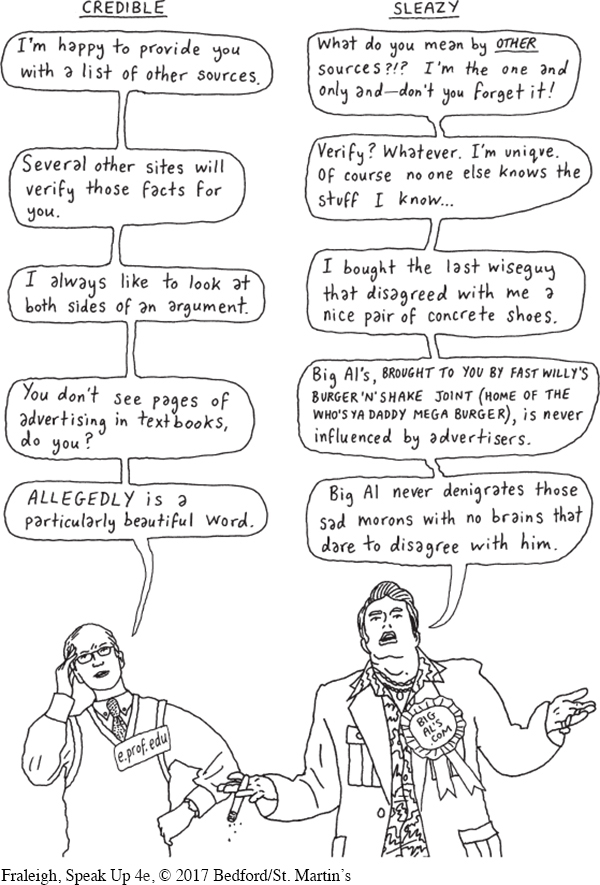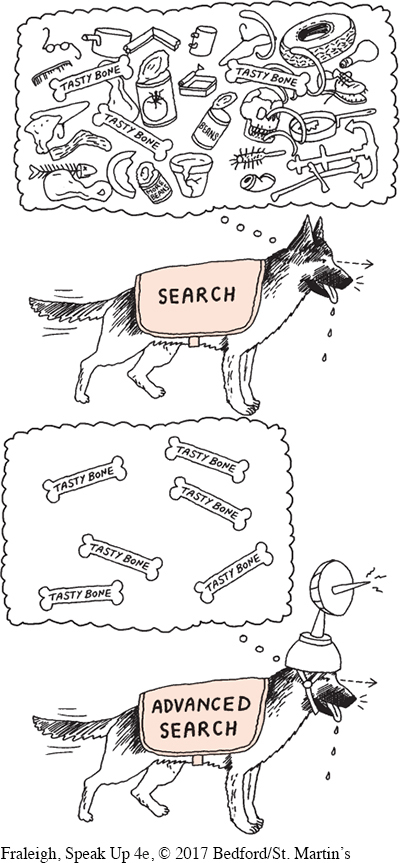Credibility of Social Media
Increasingly, online information is found on participatory (or social) media, in which people both create and access information. However, the lack of review taking place before information is posted makes it difficult to assess the credibility of these sites.26 Thus, you should proceed with caution before using this evidence in your speech.
Page 211

Wikipedia, a site on which any user can modify the content, is the most popular example of this media. Some studies have suggested that this site is a credible source of factual information, with similar error rates to other reference works.27 Nevertheless, you should be very careful about using Wikipedia as an evidence source. As a 2011 study found, Wikipedia “suffers less from inaccuracies than omissions,” reflecting “the limited expertise and interests of contributors.”28 Another study concluded that Wikipedia is not a neutral source of information; as a “socially produced” work, it “reflects the viewpoints, interests, and emphases of the people who use it.”29
Page 212
Ironically, a May 2013 Wikipedia entry on “Wikipedia: Academic Use” provides useful advice. The Wiki page questions the credibility of the site and cautions against its use as a source in academic work. While stating that Wikipedia and other reference works can be used to gain background information at the start of your research, it cautions that books, articles, and other sources will provide better research.30
Searching the World Wide Web. You’ve likely used search engines—specialized online programs that continually visit Web pages and index what is found there. When you enter a search term, the engine searches millions of Web pages to find the best matches for the term.31 Results are sorted in an effort to make them more useful. Some engines organize the results by listing them according to specific criteria—
Which search engine is best for you? Try several, and compare their features and functionality. You also can check online for reviews of engines that highlight key features and provide updates as more features become available. In the United States, the most frequently used search engine is Google, followed by Bing and Yahoo!33
How can you improve the quality of your search? Here are a few suggestions:
Use quotation marks around key phrases. If you are researching a proposed tax on soft drinks, searching for “soda tax” will focus your results on the proposed tax rather than sites dealing with soda or taxes more generally.
Use precise search terms. For example, if you want to search for the health effects of a soda tax, search for “soda tax” and “health effects.” Use the same process to focus your search on economic effects or the constitutionality of such a tax.
Page 213
Use advanced search features. These features allow you to limit your search by date, language, country, or file format. You also can prioritize your search terms based on where they occur in the Web page. The safe-
search feature avoids sites with pornographic or explicit content. 
Use scholarly search features. Search engines such as Google Scholar and Microsoft Academic Search limit their results to information from scholarly sources. Some search results include full-
text articles, but don’t be surprised if only the citation is available. Tip: If there is a fee to access an article, copy down the citation. Your college librarian can probably help you access the article for free.